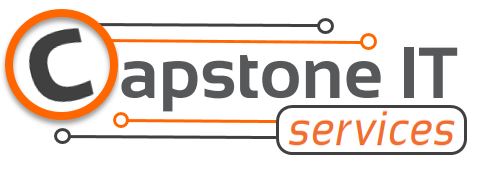Artificial intelligence (AI) tools like ChatGPT, Google Gemini, and Microsoft Copilot are rapidly transforming how businesses in Palm Beach, the Treasure Coast, and across South Florida work. These tools are saving time, boosting productivity, and even assisting with tasks like email writing, customer support, marketing content, and spreadsheet automation.
But here’s the catch: AI can also be a security risk—especially when your team doesn’t understand how to use it safely.
If you're not actively monitoring how AI is being used in your business, you could unknowingly be putting sensitive data in the hands of cybercriminals.
What’s the Risk?
The problem isn’t the AI tools themselves—it’s how your employees are using them. Many workers, eager to save time, copy and paste confidential client information, login details, or financial data into free public AI platforms like ChatGPT. Unfortunately, once that data is submitted, it’s often stored, analyzed, and in some cases, used to train future versions of the AI.
This means your private company data could be exposed—without your knowledge.
Take the 2023 incident at Samsung, for example: developers accidentally leaked internal source code to ChatGPT. The breach was so serious, Samsung banned all public AI use company-wide. If it can happen to a global tech company, it can certainly happen to a small or mid-sized business in South Florida.
Imagine one of your employees in West Palm Beach, Stuart, or Fort Pierce pasting confidential client records into ChatGPT to “get help writing a summary.” Without realizing it, they’ve just compromised your firm’s reputation, compliance requirements, and security.
A Growing Threat: Prompt Injection Attacks
Hackers are getting smarter. A new AI-specific tactic called prompt injection involves hiding malicious code or instructions inside everyday content like PDFs, emails, or meeting transcripts. When AI tools are used to analyze that content, they can be manipulated into revealing sensitive information—or worse, taking harmful actions.
That means even your AI assistant can be tricked into doing the hacker’s dirty work.
4 Steps to Secure AI Use in Your Business
Here’s what you can do right now to protect your data and use AI safely:
- Create a Company AI Usage Policy
- Educate Your Employees
- Stick With Business-Class AI Tools
- Monitor and Manage AI Use
Clearly define which tools are approved, what types of data are off-limits, and who to contact with questions.
Hold a brief training session to help your staff understand the risks of AI, including examples of prompt injection and data leakage.
Platforms like Microsoft Copilot are built with enterprise security and compliance in mind. These tools offer more control over your data and reduce risk compared to free public platforms.
Keep an eye on which tools are being used on company devices. In some cases, it may be smart to block access to unapproved AI platforms altogether.
Don’t Let AI Use Open the Door to a Cyberattack
Artificial intelligence is an incredible tool for businesses—but only if it’s used safely. Whether you’re a law firm in Jupiter, a medical office in Stuart, or a financial company in Palm Beach Gardens, the stakes are too high to ignore the risks.
A few careless keystrokes could expose your entire organization to cybercriminals, data breaches, or legal trouble.
At Capstone IT, we help South Florida businesses use AI tools like Microsoft Copilot safely and strategically. Let’s set up a quick consultation to make sure your team isn’t putting your company at risk.

